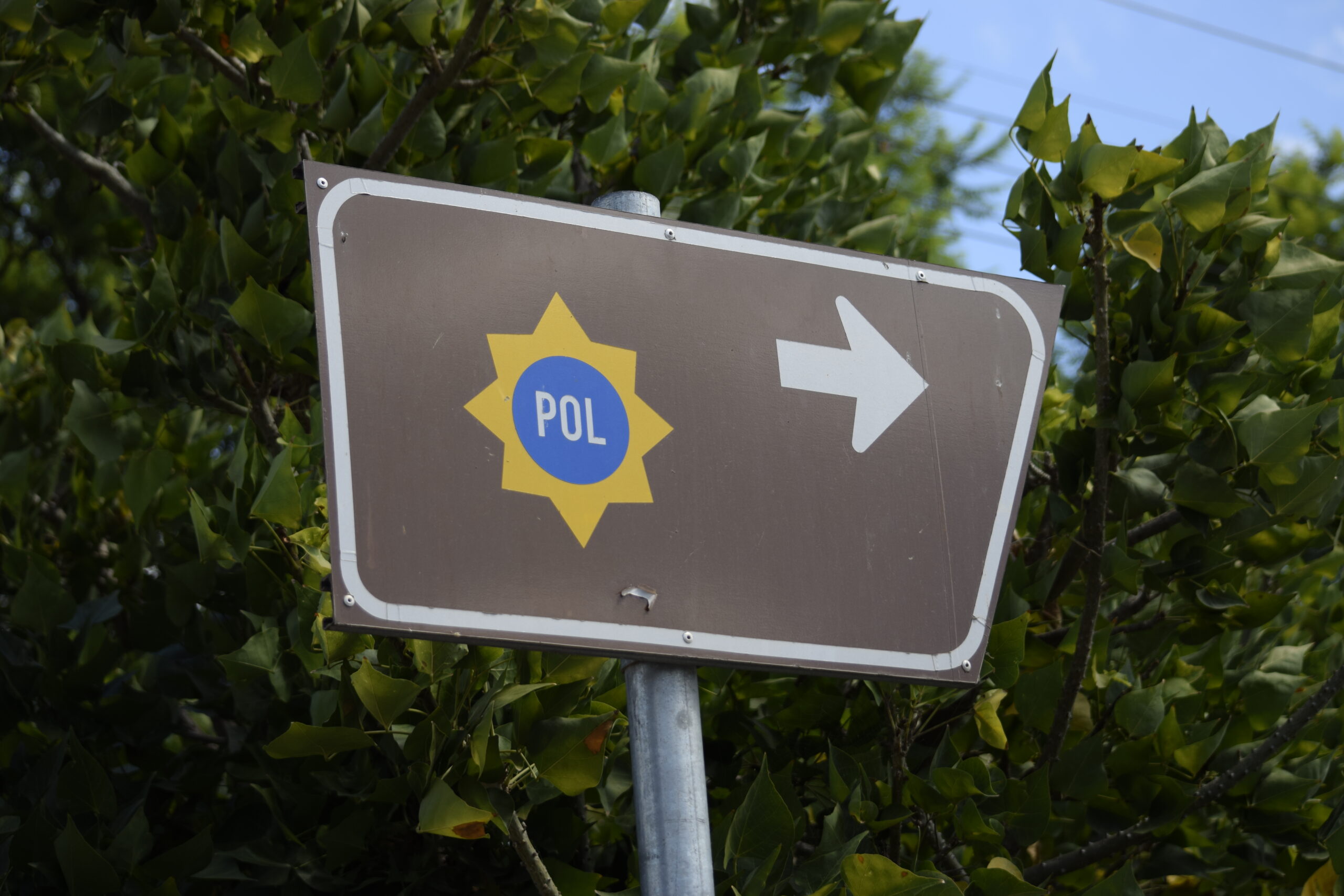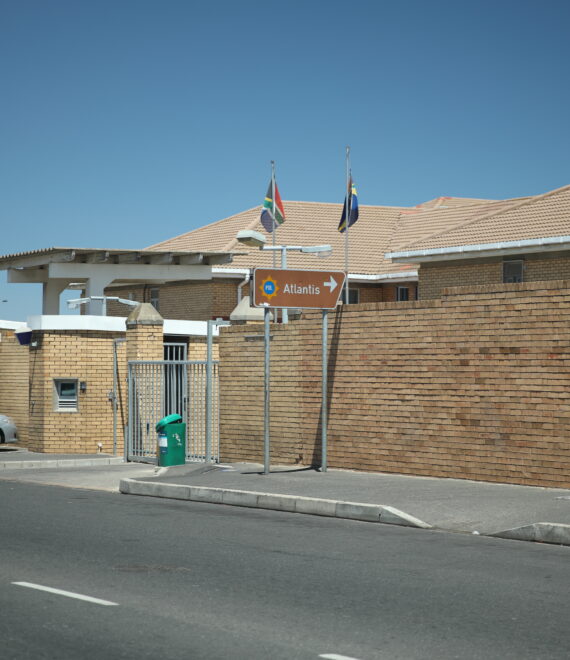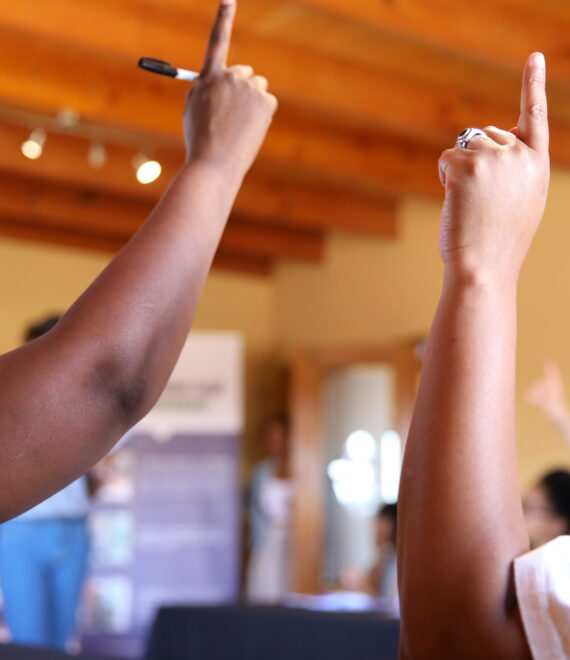I think reporting in this country is itself a form of trauma. So it's like trauma on trauma.
125 of the 127 survivors and family members surveyed, who reported abuse to police said they faced problems trying to do so:
86 % said police did not explain their rights
82 % said police failed to treat them with sensitivity, dignity, and urgency
38 % said that police discouraged them from opening an official case against their abuser
Many survivors reported failures of the South African Police Service at the very first step of the justice process: reporting an assault. A quarter of survivors and family members surveyed said that the police never even registered their case.
Officers advised survivors to find a solution with the perpetrator rather than open a formal case and “waste government resources.” In some instances, this led to further violence.
Even when survivors succeed in registering their case, the reporting experience is often retraumatizing. Survivors reported that after long wait times at the station, they often had to share their story with male police officers, who did not demonstrate the sensitivity, dignity, and urgency required in gender-based violence cases. These officers frequently failed to explain survivors’ rights as victims or the next steps in their cases.
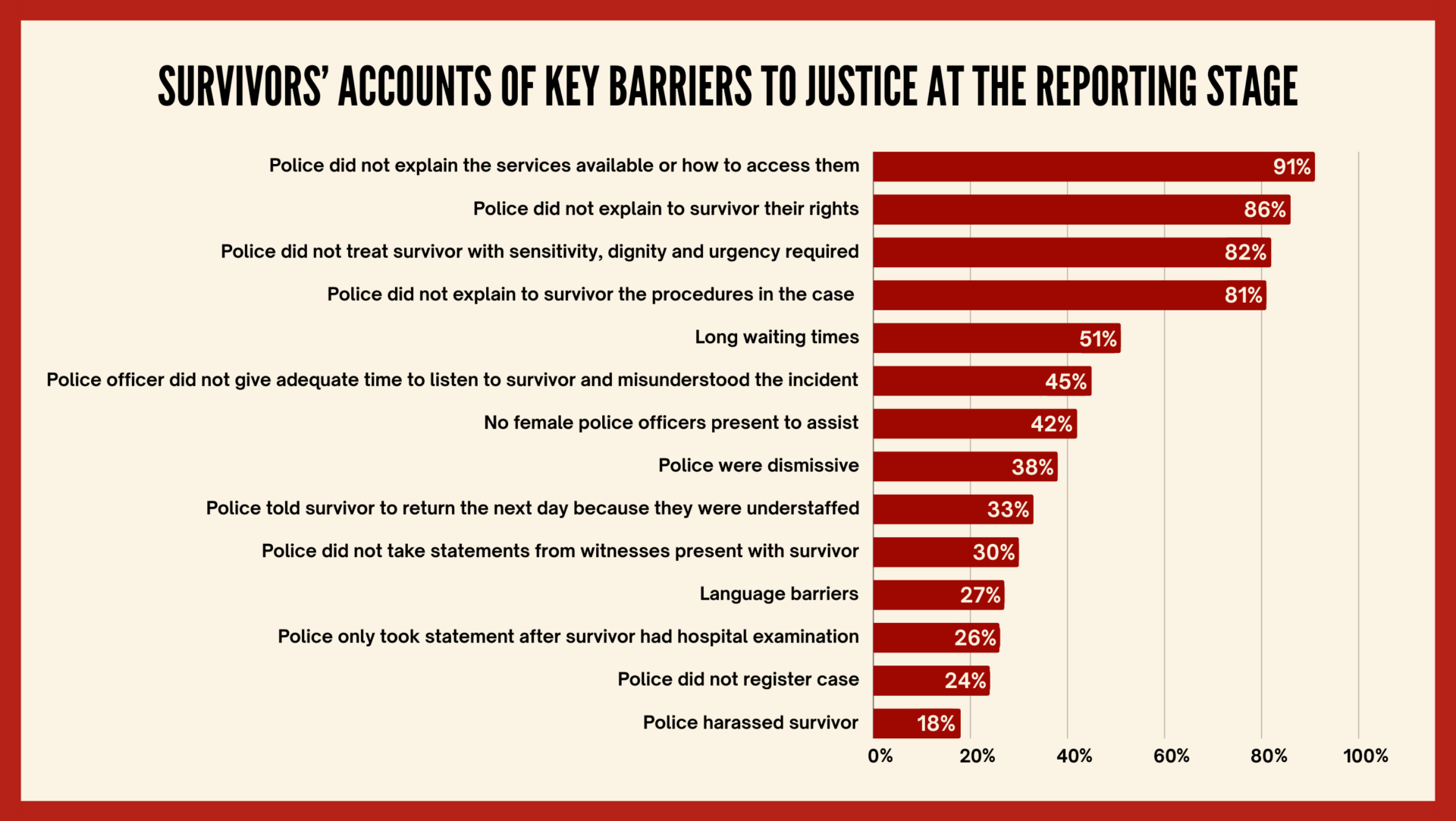
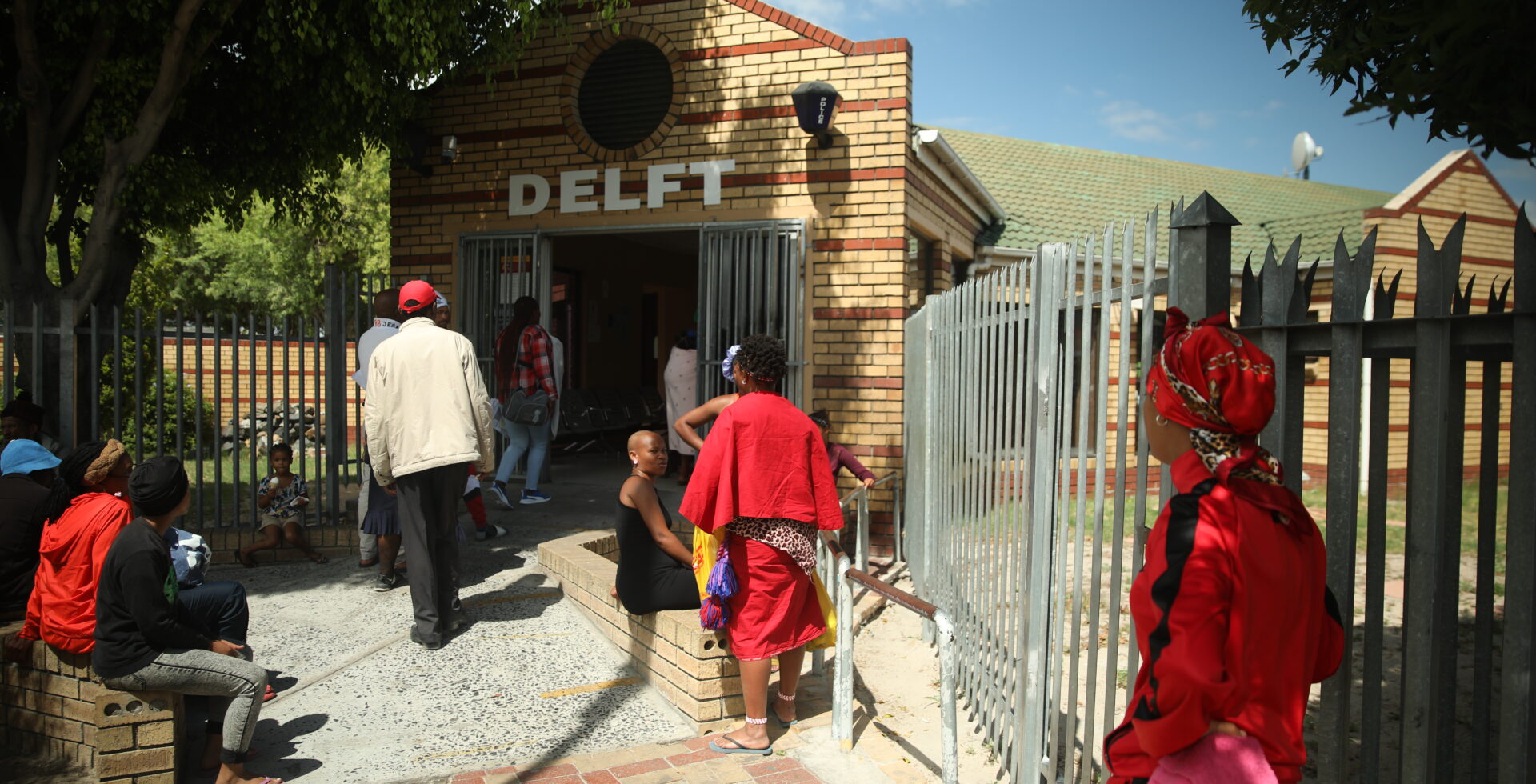
They [the police] are busy with more important murder cases… they can’t help her with her domestic issues, she must sort it out herself. This is what they told her and led to her death, the very reason she’s no longer with us today.
